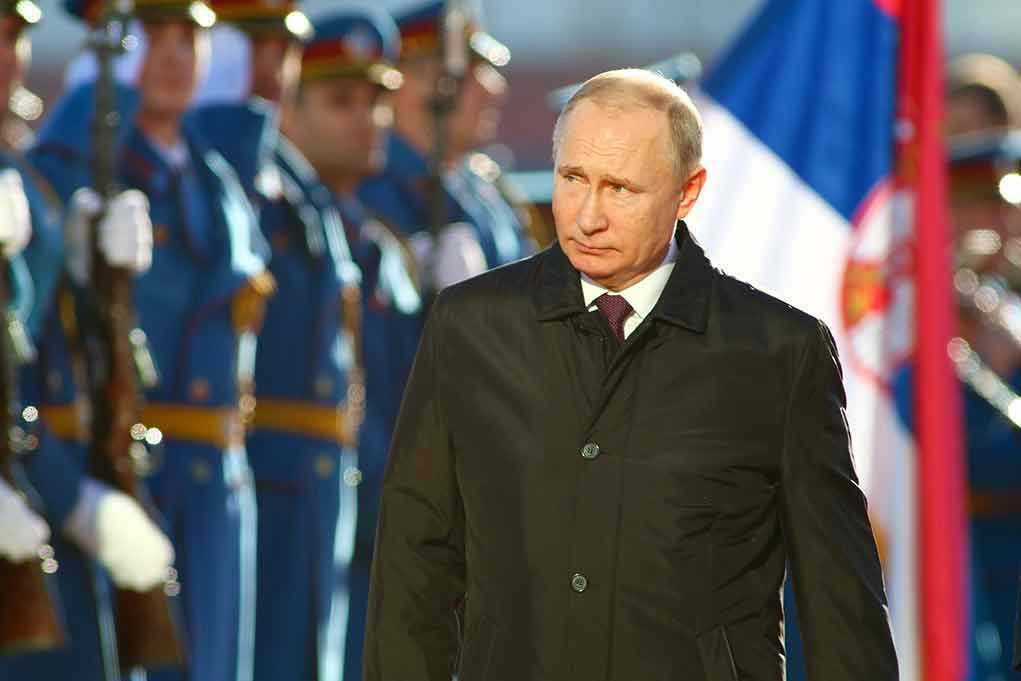
When Vladimir Putin tried to rewrite American history to claim Russia helped us win our independence, it wasn’t just a stretch—it was a masterclass in historical revisionism designed to muddy the waters, and the timing, right before a massive Russian drone attack on Ukraine, couldn’t have been more transparent.
At a Glance
- Putin claimed Russia aided America’s independence and the Union in the Civil War—a narrative rejected by credible historians.
- Trump and Putin’s July 2025 call exposed deep, unresolved divisions over Ukraine, with Putin refusing to budge on his war goals.
- Hours after the call, Russia launched its largest drone and missile attack on Ukraine since the conflict began.
- Trump threatened new sanctions and discussed sending Patriot missiles to Ukraine, signaling no thaw in U.S.-Russia relations.
Putin’s Tall Tales and the Art of Historical Gaslighting
Here we go again—Vladimir Putin, never one to let facts get in the way of a good propaganda opportunity, chimed in during a July 2025 phone call with President Trump to claim that Russia had a hand in America’s hard-won independence and later stood shoulder-to-shoulder with the Union during our Civil War. According to Putin, Russia supplied weapons and money to the revolutionaries and, decades later, came to the Union’s aid. Of course, anyone who’s cracked open an actual history book knows this is pure fantasy: Russia was officially neutral during the American Revolution and didn’t even recognize the United States until 1803, long after the smoke from Yorktown had settled. As for the Civil War, Russia’s “support” amounted to a symbolic naval deployment, not material aid. But why let facts stand in the way when you’re trying to stir up confusion and nostalgia in equal measure? It’s a ploy as old as the Kremlin walls—rewrite the past, justify the present, and hope no one calls your bluff.
Putin’s use of “shared history” isn’t just a page out of the old Soviet playbook—it’s a calculated move to sow doubt, both at home and abroad. This historical name-dropping came on the heels of escalating tensions in Ukraine, where Russian forces continue their brutal campaign, and as the world watches to see whether President Trump’s promise of a quick peace deal is anything more than wishful thinking. For Americans who value truth and the lessons of real history, Putin’s revisionism is not only laughable, it’s dangerous.
Trump-Putin Call: No Progress, No Peace, Just More Posturing
The much-anticipated July 3rd phone call between Trump and Putin lasted an hour but yielded nothing but disappointment for those hoping for a diplomatic breakthrough. Trump reportedly expressed his frustration, making it clear that Putin refused to entertain the idea of ending his invasion of Ukraine. Instead of compromise, Putin doubled down, reiterating his demand that Ukraine abandon its NATO ambitions and accept Russian control over seized territories. Within hours—because nothing says “peace” like a barrage of missiles—Russia launched its largest drone and missile attack on Ukraine since the war began, a move that left little doubt about Putin’s intentions or his respect for international norms. Trump, not one to mince words, emerged from the call ready to talk tough, hinting at new sanctions and discussing with allies the possible delivery of Patriot missile systems to Ukraine. But in a world where tough talk from Washington is often met with defiance from Moscow, the stalemate drags on, and innocent people pay the price.
This phone call wasn’t a negotiation—it was a showcase of hardened positions. Putin wants the world to believe he’s the aggrieved party, and Trump is left juggling the expectations of a war-weary American public and skeptical European allies. The only thing both leaders managed to agree on is that the current situation is nowhere near a resolution.
The Real Cost: Stalemate Abroad and Spin at Home
This latest episode is a perfect example of how international grandstanding leaves regular people—the ones the politicians claim to represent—out in the cold. For Ukrainians, the cost is measured in lives, destroyed towns, and shattered families. For Russians, it’s another round of potential sanctions and economic hardship, courtesy of their leader’s imperial nostalgia. And for Americans? We get to watch our tax dollars pour into another foreign war while our own border security and economic challenges get buried beneath the latest “crisis” abroad. Putin’s attempt to whitewash history and recast Russia as America’s old friend is as transparent as it is insulting. It’s a move designed to distract from his own aggression and paint himself as a misunderstood partner, not the architect of Europe’s bloodiest conflict since WWII.
Meanwhile, Trump’s hand is forced—either play hardball with new sanctions and more military aid or risk being painted as weak by his critics at home. Any hope that the call would lead to a diplomatic breakthrough evaporated the moment Russian missiles rained down on Ukrainian cities. The world is left with a grim reality: entrenched autocrats don’t back down because of polite conversation, and history—real history—can’t be rewritten by press release.

